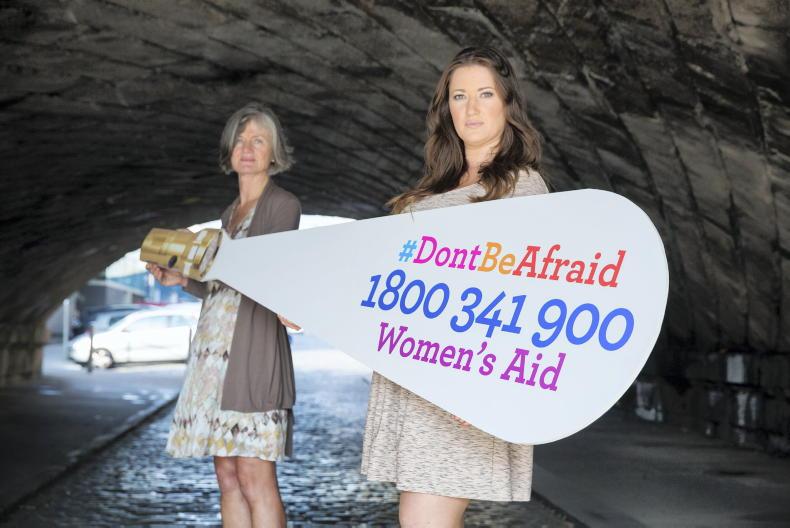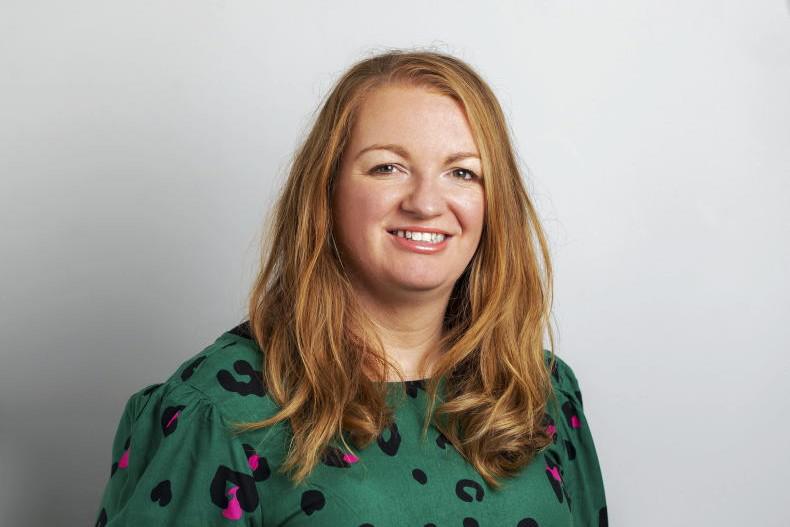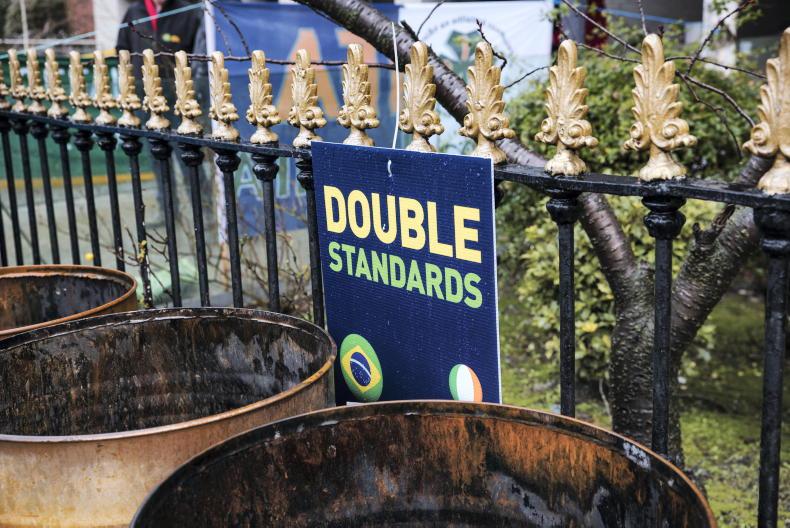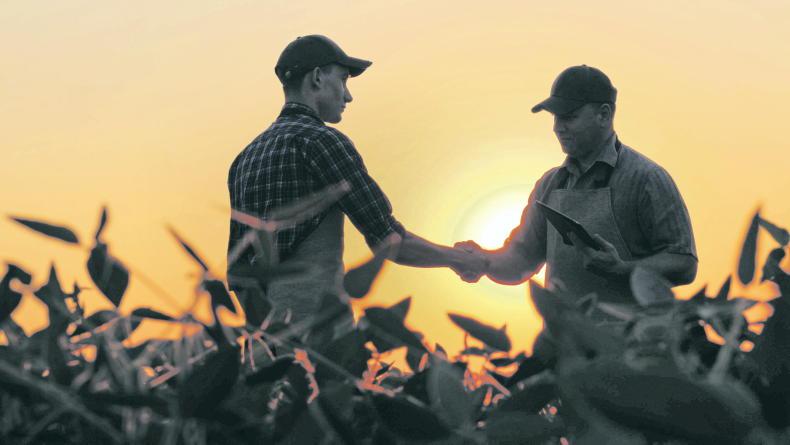Years ago, a fleeting comment overheard in a cold cemetery solidified in my young head the value of financial independence for a woman.
In the company of a group of older ladies – the cohort of both the grieving widow and my mother – one lady commented that “she (the widow) would at least now be able to control the purse strings and buy what she needed instead of having to ask for permission”.
I thought it a strange comment with the man barely in the ground and I queried it with my mother on the way home. She said the lady in question didn’t have her own income and was therefore beholden to her husband for the money she needed to run the household and he was known for his frugality. My mother’s view was that this was not an ideal scenario. I concurred.
Years have passed, but this issue has not. A bulletin on Morning Ireland last week reported that 22% of women aged 18-34 do not have control over their financial affairs. The research from the Banking and Payments Federation Ireland (BPFI) reported this figure was twice the proportion for all respondents (11%).
Financial abuse is a central element of domestic violence
A powerful TV advert currently airing from Women’s Aid shows women in different circumstances of domestic abuse. One is an older lady, putting money into a tin on the mantelpiece hurriedly – the escape fund.
Commenting on the BPFI research, Women’s Aid CEO Sarah Benson said: “Financial abuse is a central element of domestic violence including coercive control. Abusers use money as a means of controlling and isolating their partners to gain power and dominance.”

Women's Aid have a National Freephone Helpline 24 hours a day, seven day a week 1800 341 900.
We have reported previously on mental health initiatives that support farmers “over the farmgate” such as On Feirm Ground.
This programme equips farm advisers with a toolkit to support their clients in relation to physical and psychological wellbeing. Mental Health First Aid Ireland is another service that delivers mental health first aid training courses to communities.
The aim being that those trained can signpost those in difficulty to the appropriate services. Research is often carried out before simply gathering dust on a shelf so it is positive to see action being taken by BPFI members.
Women have been worse impacted by COVID-19 because of the inequalities that existed pre-pandemic
This action follows a similar principle to these proven mental health initiatives. By equipping, training and supporting those – who may be in a position to spot coercive control or financial abuse – to act, they are empowered to do so.
Abuse is not the only way that women find themselves in monetary dependency.
Women have been worse impacted by COVID-19 because of the inequalities that existed pre-pandemic. These include the fact that women fill lower-paid or part-time jobs, the gender pay gap and a greater share of responsibility for child and elder care.
Maternity leave is another time in life when a woman can lose control of her finances.
If the employer does not top up the Government’s maternity payment, this can often result in a period of financial struggle. The figures are stark according to the CSO.
In 2019, 46% of women in receipt of maternity benefit received no top-up payment. The sectors least likely to provide a top-up to income were the wholesale and retail trade at 39.5%.
Agriculture, forestry and fishing were not too far behind with 34% of workers in our sector receiving no top up. Next week, we are digging into the issue of maternity leave, payments and safety for women farmers in terms of both finance and health.
Read more
Support required to avoid pitfalls of long-standing cheap food policy
How do farmers manage a 10th paid day off for staff?
Years ago, a fleeting comment overheard in a cold cemetery solidified in my young head the value of financial independence for a woman.
In the company of a group of older ladies – the cohort of both the grieving widow and my mother – one lady commented that “she (the widow) would at least now be able to control the purse strings and buy what she needed instead of having to ask for permission”.
I thought it a strange comment with the man barely in the ground and I queried it with my mother on the way home. She said the lady in question didn’t have her own income and was therefore beholden to her husband for the money she needed to run the household and he was known for his frugality. My mother’s view was that this was not an ideal scenario. I concurred.
Years have passed, but this issue has not. A bulletin on Morning Ireland last week reported that 22% of women aged 18-34 do not have control over their financial affairs. The research from the Banking and Payments Federation Ireland (BPFI) reported this figure was twice the proportion for all respondents (11%).
Financial abuse is a central element of domestic violence
A powerful TV advert currently airing from Women’s Aid shows women in different circumstances of domestic abuse. One is an older lady, putting money into a tin on the mantelpiece hurriedly – the escape fund.
Commenting on the BPFI research, Women’s Aid CEO Sarah Benson said: “Financial abuse is a central element of domestic violence including coercive control. Abusers use money as a means of controlling and isolating their partners to gain power and dominance.”

Women's Aid have a National Freephone Helpline 24 hours a day, seven day a week 1800 341 900.
We have reported previously on mental health initiatives that support farmers “over the farmgate” such as On Feirm Ground.
This programme equips farm advisers with a toolkit to support their clients in relation to physical and psychological wellbeing. Mental Health First Aid Ireland is another service that delivers mental health first aid training courses to communities.
The aim being that those trained can signpost those in difficulty to the appropriate services. Research is often carried out before simply gathering dust on a shelf so it is positive to see action being taken by BPFI members.
Women have been worse impacted by COVID-19 because of the inequalities that existed pre-pandemic
This action follows a similar principle to these proven mental health initiatives. By equipping, training and supporting those – who may be in a position to spot coercive control or financial abuse – to act, they are empowered to do so.
Abuse is not the only way that women find themselves in monetary dependency.
Women have been worse impacted by COVID-19 because of the inequalities that existed pre-pandemic. These include the fact that women fill lower-paid or part-time jobs, the gender pay gap and a greater share of responsibility for child and elder care.
Maternity leave is another time in life when a woman can lose control of her finances.
If the employer does not top up the Government’s maternity payment, this can often result in a period of financial struggle. The figures are stark according to the CSO.
In 2019, 46% of women in receipt of maternity benefit received no top-up payment. The sectors least likely to provide a top-up to income were the wholesale and retail trade at 39.5%.
Agriculture, forestry and fishing were not too far behind with 34% of workers in our sector receiving no top up. Next week, we are digging into the issue of maternity leave, payments and safety for women farmers in terms of both finance and health.
Read more
Support required to avoid pitfalls of long-standing cheap food policy
How do farmers manage a 10th paid day off for staff?









SHARING OPTIONS